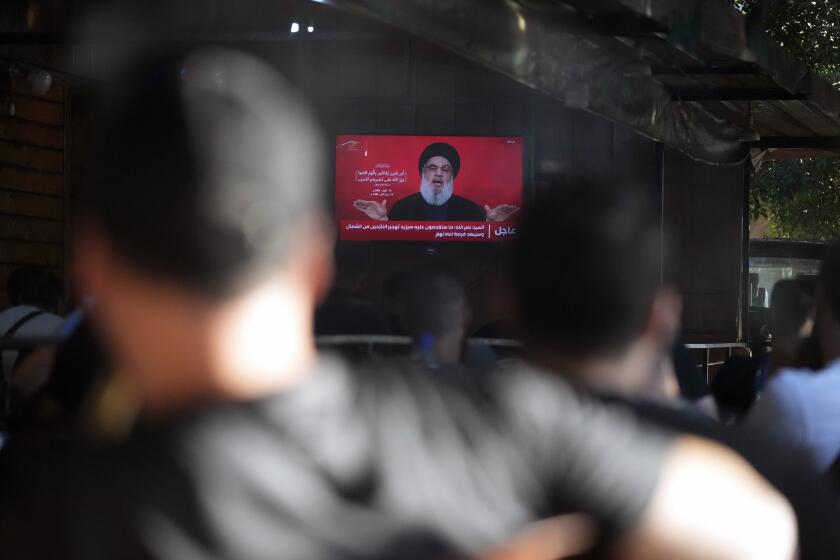Send a Message to Cuba
After years of calling for liberalized relations with Cuba, this editorial page must now urge American policy makers to hit the brakes. This month, Fidel Castro threw up a roadblock that cannot be ignored: He sicced his political police on about 90 independent journalists, political dissidents, union activists and people who had made the mistake of privately lending books by such authors as Vaclav Havel and George Orwell.
Labeling their targets traitors, Castro’s cops seized computers, typewriters and books. At least 70 are still in jail. Those found guilty of “conspiratorial activities” could end up with sentences of 20 years.
The return to repression looks like a trend. The Cuban government issued new travel restrictions on U.S. diplomats after accusing James Cason, the principal U.S. diplomat in Cuba, of trying to “foment the internal counterrevolution.” His offense? He traveled the island handing out books by Martin Luther King Jr., John Steinbeck and Stephen King. Before the crackdown, U.S. diplomats had to give 72 hours’ notice before leaving the province of Havana; now they have to ask Castro’s permission to travel the island.
Ironically, this onslaught against liberty takes place as 10 U.S. senators seek congressional consideration of easing of U.S. policies toward Cuba, including trade and travel restrictions.
Relaxing the sanctions policy that has been in place since 1962 made sense so long as Castro was inching toward tolerance of individual freedoms. And he was. Pope John Paul II’s visit to the Caribbean island in 1998 got things rolling. Former President Carter dropping in last year helped. Castro was showing more openness to incipient independent movements such as the Varela Project, a campaign calling for political and economic reforms. Independent journalism flourished during Havana’s brief flirtation with freedom.
Now, condemnations are flying. The European Union, Human Rights International, the American Society of Newspaper Editors and the Inter American Press Assn. have protested the intrusions and arrests. AFL-CIO President John J. Sweeney wrote to Cuban authorities demanding “the immediate release of these labor activists and an end to all attacks against independent groups.”
The senators pushing to relax sanctions must let Castro know that renewed repression will set such efforts back.
Before Congress even thinks about loosening restrictions, it should demand that Castro free those rounded up this month and demonstrate that his nation is moving toward democracy and away from totalitarianism.
More to Read
Sign up for Essential California
The most important California stories and recommendations in your inbox every morning.
You may occasionally receive promotional content from the Los Angeles Times.










